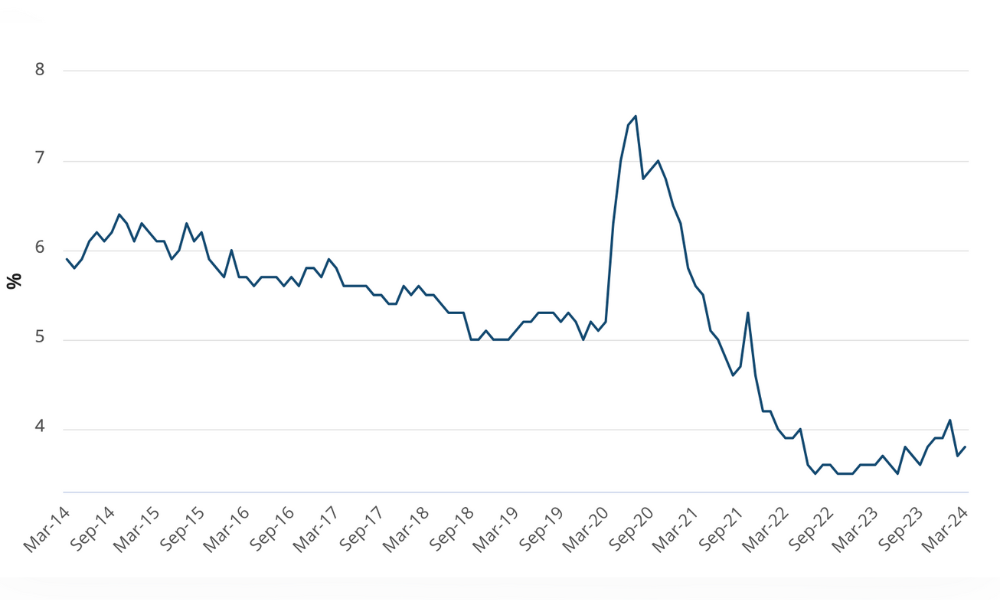HRD talks to a lawyer about how workplace legislation is struggling to keep pace with global changes
.jpg)
Few periods of recent history have been more tumultuous for global geopolitics than the last 12 months.
The June 2016 Brexit vote, the November 2016 US Presidential election and political developments thereafter within the EU and elsewhere have revealed a groundswell of support for populist and inward-looking nationalist policies.
Not surprisingly, many businesses have been caught in the crosshairs.
“A quite significant amount of uncertainty” is how Joydeep Hor, founder and managing principal, People + Culture Strategies, describes the prevailing mood in business circles over this period.
Fresh from attending an international forum on employment law in Dublin, Hor said there was very much a wait and see approach being taken to what happens next with Brexit.
“In the employment law context one very relevant issue is the huge amount of uncertainty in terms of what the next Brexit piece is going to look like, and what that will translate to in terms of regulation of employment laws,” he said.
“Some suggest the existing EU laws have been overly restrictive; others don’t want these laws to change too much. It will be interesting to see what happens there.”
Hor added that employers based in countries that have taken more of a protectionist stance in trade should perhaps brace for more restrictive employment laws and regulations – although he quickly adds that there was “no consensus opinion” reached at the forum on whether this would occur.
“A lot of things have been tabled for now but the reality of what the position will end up being remains very uncertain,” Hor said.
“This goes to things like the migration piece as well, which is hugely relevant in the context of this populist rise that’s happening worldwide.”
The other piece that emerged quite strongly at the event was how these worldwide events are actually translating into discourse in organisations – that is, people sharing passionate political views in the workplace, and more importantly, employers’ scope to regulate that conduct.
“This came up not just in the context of social media but also behavioural regulation in workplaces,” Hor explained.
“There was a lot of strong counsel to employers that they do need to be vigilant in terms of what kind of behaviours and conduct – whether it’s social media or otherwise – will be tolerated.”
Hor added that in some jurisdictions, the concept of constitutional freedom of speech is extremely well protected; in other jurisdictions such viewpoints are less likely to be shared.
“Where you have 35 different countries represented, as there was at this conference, there is quite a wide spectrum of what is acceptable workplace behaviour – but regardless of which country you are operating your business in, you must be clear about what you tolerate or won’t tolerate.”
Related stories:
Legalities of automation and redundancy
Can you refuse to hire someone with a speech impediment?
Maternity leave and redundancy – What you need to know
The June 2016 Brexit vote, the November 2016 US Presidential election and political developments thereafter within the EU and elsewhere have revealed a groundswell of support for populist and inward-looking nationalist policies.
Not surprisingly, many businesses have been caught in the crosshairs.
“A quite significant amount of uncertainty” is how Joydeep Hor, founder and managing principal, People + Culture Strategies, describes the prevailing mood in business circles over this period.
Fresh from attending an international forum on employment law in Dublin, Hor said there was very much a wait and see approach being taken to what happens next with Brexit.
“In the employment law context one very relevant issue is the huge amount of uncertainty in terms of what the next Brexit piece is going to look like, and what that will translate to in terms of regulation of employment laws,” he said.
“Some suggest the existing EU laws have been overly restrictive; others don’t want these laws to change too much. It will be interesting to see what happens there.”
Hor added that employers based in countries that have taken more of a protectionist stance in trade should perhaps brace for more restrictive employment laws and regulations – although he quickly adds that there was “no consensus opinion” reached at the forum on whether this would occur.
“A lot of things have been tabled for now but the reality of what the position will end up being remains very uncertain,” Hor said.
“This goes to things like the migration piece as well, which is hugely relevant in the context of this populist rise that’s happening worldwide.”
The other piece that emerged quite strongly at the event was how these worldwide events are actually translating into discourse in organisations – that is, people sharing passionate political views in the workplace, and more importantly, employers’ scope to regulate that conduct.
“This came up not just in the context of social media but also behavioural regulation in workplaces,” Hor explained.
“There was a lot of strong counsel to employers that they do need to be vigilant in terms of what kind of behaviours and conduct – whether it’s social media or otherwise – will be tolerated.”
Hor added that in some jurisdictions, the concept of constitutional freedom of speech is extremely well protected; in other jurisdictions such viewpoints are less likely to be shared.
“Where you have 35 different countries represented, as there was at this conference, there is quite a wide spectrum of what is acceptable workplace behaviour – but regardless of which country you are operating your business in, you must be clear about what you tolerate or won’t tolerate.”
Related stories:
Legalities of automation and redundancy
Can you refuse to hire someone with a speech impediment?
Maternity leave and redundancy – What you need to know





